For decades, the U.S. government has asked faith-based charities to help resettle refugees legally admitted into the country and help care for unaccompanied minors who cross the border. Donald Trump and Congress funded both of those programs for all four years of Trump’s first term. In order to ease the burden on border towns in 2019, Trump and an overwhelming majority of Congress created a third program giving grants to religious charities and other organizations to provide assistance to migrants released inside the United States by the federal government.
But in the opening weeks of Trump’s second term, these religious groups have found themselves in the crosshairs of the MAGA movement. They’ve been branded as corrupt, possibly criminal, and bearing blame for the border crisis—all for their participation in one or more of the programs once funded by Trump.
To better understand the controversy, it helps to break down each of these three programs one at a time.
Refugee resettlement.
In an appearance on Face the Nation on January 26, Vice President J.D. Vance questioned whether the U.S. Conference of Catholic Bishops (USCCB) was criticizing the Trump administration’s immigration policies because the organization receives “$100 million to help resettle illegal immigrants” and may be “worried about their bottom line.” (Editor’s Note: The wife of this article’s author worked for the USCCB from 2018 to 2023.)
The USCCB quickly pushed back, noting that it does not profit from resettling refugees—indeed, it consistently spends more money than it receives from the federal government each year on resettling refugees. It also emphasized that it only resettles refugees vetted by the U.S. government and lawfully admitted into the country—it does not not resettle “illegal immigrants,” as Vance had claimed.
“Every person resettled through [the United States Refugee Admissions Program] is vetted and approved for the program by the federal government while outside of the United States,” the USCCB said in a January 26 statement. “In our agreements with the government, the USCCB receives funds to do this work; however, these funds are not sufficient to cover the entire cost of these programs.”
The U.S. law governing the resettlement of refugees dates back to 1980 and a surge of refugees from Vietnam. The law Congress passed in response to the surge effectively gives the president unilateral authority to admit as many or as few refugees as he wants each year. During Trump’s first term, he lowered the cap on refugees but still admitted tens of thousands of refugees each year and thus provided hundreds of millions of dollars to resettlement agencies. The U.S. government has partnered with 10 private agencies to help resettle refugees—most of which are religiously affiliated like the USCCB—and the government provides those agencies funding on a per capita basis to help refugees assimilate. Last year, the one-time payment from the State Department to resettlement agencies was $2,375 per refugee. A majority of that payment goes toward direct cash assistance to cover basic needs of refugees, with the remainder going to resettlement agencies for case work: helping refugees find housing and employment, enroll in schools and English-language programs, and find access to health care.
“There’s just so much misinformation out there,” said Chelsea Sobolik of World Relief, an evangelical Christian charity registered to resettle refugees. “People say, ‘Do it the right way; we want legal immigration.’ That is refugees. Refugees are people who have waited for years.… They come into the country at the invitation of our State Department.”
Despite admitting tens of thousands of refugees during his first term, Trump suspended the refugee program entirely on the first day of his second term with the possibility of exceptions made on a case-by-case basis. “The biggest heartbreak is there were thousands of refugees, who were already screened, invited to the U.S., whose flights were canceled,” said Sobolik. “Some of these are persecuted brothers and sisters in the faith.”
When Sobolik posted on Twitter that World Relief—which does not shelter unaccompanied minors or use federal funds to aid illegal immigrants—would need to stop work on resettlement of legal refugees, “I was called a human trafficker probably two dozen times, including by someone I used to go to church with. On a personal level, that’s just heartbreaking. I’ve spent my whole career working on policies that try to prevent trafficking.”*
On February 7, Trump seemed to make an exception to his suspension of the refugee program when he issued an executive order stating that “the United States shall promote the resettlement of Afrikaner refugees”—that is, white South Africans—“escaping government-sponsored race-based discrimination, including racially discriminatory property confiscation.”
"There’s no other exceptions right now,” said Sobolik. “I’d be pretty surprised if they resumed” allowing refugees in.
Unaccompanied minors.
A second subject of controversy surrounding religious nonprofits and migration has been their role in caring for unaccompanied minors. On February 1, former Trump national security adviser and retired Army Gen. Michael Flynn tweeted a screenshot of payments from the Department of Health and Human Services to a variety of Lutheran nonprofit agencies and accused those Lutheran groups of engaging in a “money laundering operation [that] must end.”
“It’s time to hold these organizations accountable. American taxpayers deserve transparency. Enough is enough!” added Flynn, who failed to publicly disclose before he was named national security adviser that he was paid more than $500,000 to advance the interests of the Islamist government of Turkey.
In response to Flynn’s post, Elon Musk wrote on February 2 that his Department of Government Efficiency “is rapidly shutting down these illegal payments.”
But the payments were neither secret nor illegal. The grants came to light from people searching a government website that’s been available to the public since the George W. Bush administration, and they were authorized by federal law.
Rev. Matthew C. Harrison, president of the Lutheran Church-Missouri Synod, wrote in a February 6 letter that was generally favorable toward Trump and Musk that the Lutheran charities were providing services the government asked them to provide:
During his first term, President Trump and the First Lady visited one of the [Lutheran charities] currently under scrutiny. The president wanted to ensure that the institution would be a place to deliver outstanding care to unaccompanied minors. That agency has been quietly doing this work since that visit. They take the work with profound seriousness and love. They did not and do not deserve the broad brush of disdain brought upon them.
“If there is something legally amiss, the blame falls squarely upon the federal government,” added Harrisson, noting that the Lutheran charities in question simply do “what the government asks and pays for them to do.”
Indeed, the federal government has been asking religious nonprofits to care for unaccompanied minors for decades. The Trafficking Protection Victims Act, passed in 2000 and reauthorized in 2008, establishes special protections for minors who arrive from countries that do not share a border with the United States. Under that U.S. law, minors from Canada and Mexico may be quickly deported if there are no signs of trafficking, but the removal process for minors from other countries goes through a lengthier adjudication. Sometimes the government relies on nonprofits to shelter, feed, and educate those unaccompanied minors, or help reunite them with their family members. If the children are allowed to stay, the Trafficking Victims Protection Act requires home studies to ensure those minors are going to a safe place, and the government often relies on religious nonprofits to do that vetting.
During Trump’s first term, his administration gave hundreds of millions of dollars to secular and religious groups to care for unaccompanied minors, and Melania Trump visited one of the Lutheran charities caring for unaccompanied minors in 2018. When the arrival of unaccompanied minors first reached crisis levels during the second term of the Obama administration, Republicans viewed religious nonprofits as part of the solution to the humanitarian crisis.
“I want to thank Catholic Charities that are working to care for these children and care for these families,” Texas GOP Sen. Ted Cruz said during a 2014 visit to McAllen, Texas. Cruz was joined on the tour of Catholic Charities by several GOP congressmen, as well as the media personality Glenn Beck, who brought teddy bears and hot meals for the unaccompanied minors. At the time, Cruz blamed the humanitarian crisis solely on the immigration policies of President Obama.
Grants to address the border crisis.
During the Biden administration, however, religious charities operating at the border became villains in the eyes of some congressional Republicans and conservative activists at the Heritage Foundation, who began to argue that religious charities’ providing aid to migrants was tantamount to human trafficking.
A 2022 letter from several House Republicans to Catholic Charities accused them of fueling the border crisis and potentially breaking the law, by providing food, shelter, and transportation to migrants: “When NGOs transport unauthorized aliens into the nation’s interior, it becomes increasingly difficult for federal immigration enforcement agencies to monitor their whereabouts and protect our communities.”
Catholic, Jewish, and Protestant nonprofits had been receiving federal grants provided by the Department of Homeland Security (DHS) through the Federal Emergency Management Agency (FEMA) to care for migrants, and a “major cause of this [immigration] crisis is the incentive created” for migrants by those non-governmental-organizations, according to a letter signed by three House Republicans in 2023.
Asked in the Capitol last week if his views about Catholic Charities have changed since 2014, Cruz didn’t directly address the question, saying that the immigration “problem is qualitatively different than it was in 2014” because Joe Biden was openly defying immigration law. Asked a second time if he now thinks charities are a cause of the border crisis, Cruz said before stepping into an elevator: “There are more than a few NGOs that were actively complicit in the invasion of our Southern border, and it is why it is Democrat policy to funnel billions to the NGOs where in many ways Joe Biden and Kamala Harris were the last mile of the human trafficking network that resulted in such egregious abuses.”
But the grant program funding nonprofits at the border actually originated under the Trump administration. In the summer of 2019, Congress passed a border-supplemental bill that included $30 million “for the purposes of providing assistance to aliens released from the custody of the Department of Homeland Security.” The law left it up to FEMA’s Emergency Food and Shelter Program National Board to disburse those funds to organizations and jurisdictions, and according to an August 2019 document produced by that national board, eligible expenses under the program included food, shelter, “legal aid,” and “Long Distance Transportation costs (transportation costs to move migrants to another city or state).”
The border bill was uncontroversial at the time. Before President Trump signed it into law, it passed the Senate 84-8, with Ted Cruz voting for it. Only two Senate Republicans, Mike Lee of Utah and Rand Paul of Kentucky, voted against it. It passed the House 305-102, with only seven Republicans voting against it.
“When Border Patrol facilities got flooded in 2019, they were just basically just dumping people on the streets of El Paso,” David Bier, director of immigration studies at the Cato Institute, said of the origins of the grant program. “They couldn’t even get buses in fast enough for the people who knew where they wanted to go, there was no way to get them out.”
“It was a bother to the local residents,” and the ability to shelter or bus those migrants elsewhere “was kind of the point” of the funding, Bier said. “Certainly the government of Texas made the same calculation with its busing program [of migrants] to New York and other major cities.”
The law limited funds to providing care for migrants “released from the custody” of DHS—many but not all of whom are people claiming asylum. A 2023 DHS inspector general report called for greater oversight after finding not all of the migrants provided care under the grant program in 2021 were registered in a government database as having been encountered by DHS.
While some House Republicans see the FEMA funding for food, shelter, and transportation as “major cause” of the border crisis, Bier thinks that was only affecting the calculation of migrants at the margins. These migrants are, after all, people willing to make an often-times treacherous journey from Central America or South America under the impression they might get to live in the United States permanently. While it’s certainly preferable to end that journey by being deposited by the U.S. government at a charity instead of the El Paso bus station, the El Paso bus station is far preferable to what those migrants have left behind.
“There have been groups operating at the border, helping people for decades,” Bier said. “I think it’s backwards to look at the money and say that that’s explaining illegal immigration … The money followed the people.”
Not all Republicans in Congress think the religious charities bear blame for the border crisis. “The reason that we’ve had the illegal immigration that we’ve had over the past four years was not because of our nonprofits. It was because of a very open-border policy of the Biden administration,” Oklahoma GOP Sen. James Lankford told The Dispatch. He said that “if it wasn’t true five years ago” that humanitarian groups were fueling a crisis, then “it wasn't true last year either.”
The FEMA grant program for nonprofits and jurisdictions caring for migrants ballooned under the Biden administration, and it roughly doubled from $364 million in 2023 to $641 million in 2024. But that doubling of funds coincided with a dramatic decrease in the number of migrants encountered at the southern border. “The Biden administration enforced immigration law a lot differently the last six months of his term than they did the first six months of his term,” said Lankford. “That was obvious in the numbers” of migrants at the border.
At the start of his second term, Trump issued an executive order intended to cut off FEMA funding to NGOs providing aid to migrants. Lankford noted that if the border crisis abates, as numbers of encounters over the last few weeks indicated, “humanitarian groups are not needed in that same way.” Trump has already reinstated his policy requiring asylum seekers to remain in Mexico and reversed several other Biden administration immigration policies.
Mark Krikorian, an immigration restrictionist and head of the Center for Immigration Studies, told The Dispatch that he has “no sympathy for the NGOs” aiding migrants and thinks they do “bear some culpability” for lobbying for lax immigration laws and for “the degree to which these organizations are helping the government deal with the consequences of bad Biden policies.” Nevertheless, Krikorian said the border crisis is mainly a problem of immigration law and its enforcement: “It was the Biden administration and the Obama administration as far as implementing rules, but a lot of these loopholes exist because Congress has enacted them or not plugged them.”
Blaming nonprofits for the border crisis, Krikorian said, is “kind of the easy way out, because the main villain here is Congress in a lot of ways.”
Correction, February 18, 2025: This article has been updated to clarify that World Relief does not shelter unaccompanied minors or use federal funds to aid illegal immigrants.
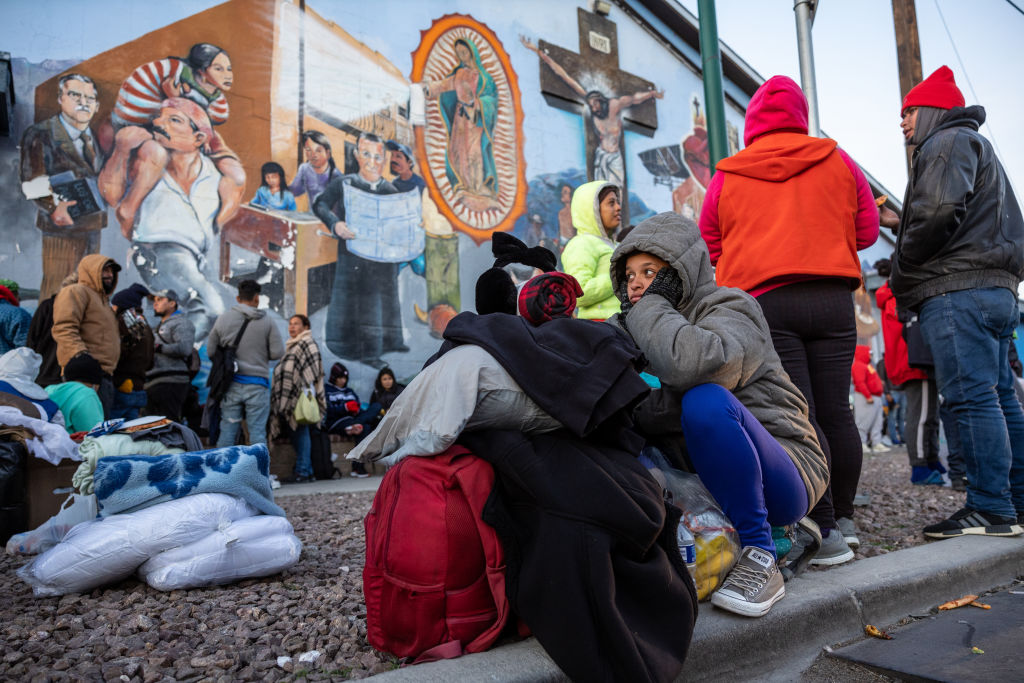

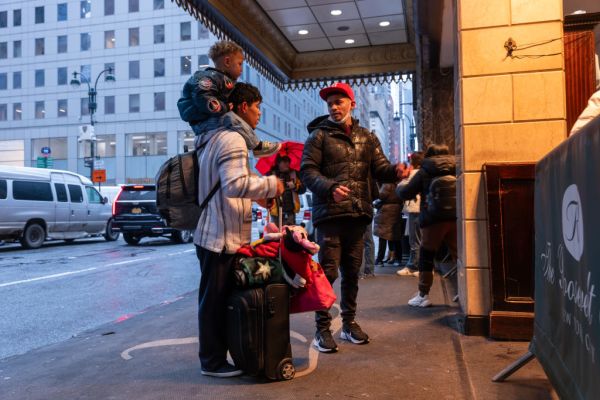
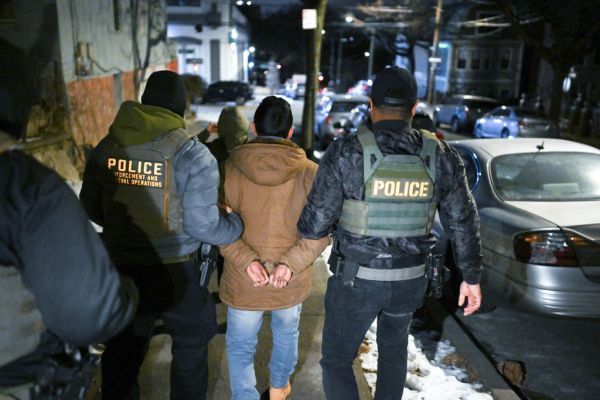
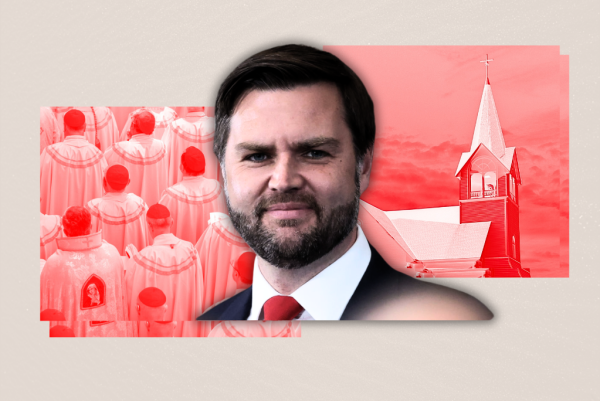

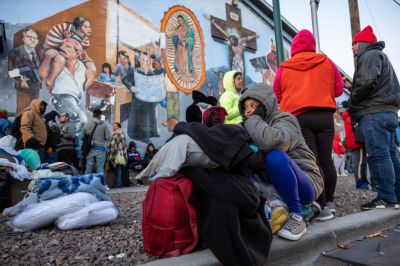
Please note that we at The Dispatch hold ourselves, our work, and our commenters to a higher standard than other places on the internet. We welcome comments that foster genuine debate or discussion—including comments critical of us or our work—but responses that include ad hominem attacks on fellow Dispatch members or are intended to stoke fear and anger may be moderated.
With your membership, you only have the ability to comment on The Morning Dispatch articles. Consider upgrading to join the conversation everywhere.